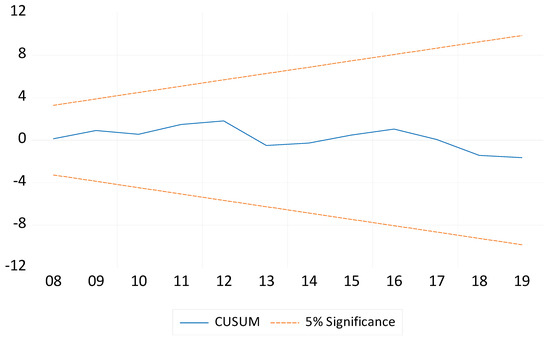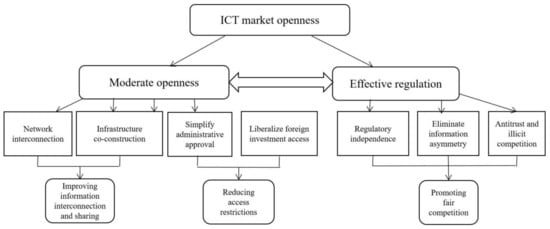International Economy and Sustainable Development
Share This Topical Collection
Editors
 Prof. Dr. Nuno Crespo
Prof. Dr. Nuno Crespo
 Prof. Dr. Nuno Crespo
Prof. Dr. Nuno Crespo
E-Mail
Website
Collection Editor
BRU–IUL (Business Research Unit), ISCTE Business School Economics Department, Instituto Universitário de Lisboa (ISCTE – IUL), Lisbon, Portugal
Interests: international economics; macroeconomics; health economics
Special Issues, Collections and Topics in MDPI journals
 Dr. Nicole Palan
Dr. Nicole Palan
 Dr. Nicole Palan
Dr. Nicole Palan
E-Mail
Website
Collection Editor
Department of Geography and Regional Science, University of Graz, Graz, Austria
Interests: international economics; regional disparities; structural change; digitalization; public economics; European integration
Topical Collection Information
Dear Colleagues,
The aim of the Topic Collection entitled “International Economy and Sustainable Development” is to gather a series of contributions that explore the area of sustainable development from an international perspective. The international arena is changing rapidly, therefore requiring new studies aiming to understand how individual countries or groups of countries can maintain their position in a vast number of domains of economic activity and can develop strategies when taking a structural perspective about future outcomes. However, countries participate in a myriad of international flows involving goods, capital, migrations, tourism, and information, among other aspects. Concerning these issues, it is necessary to define national strategies and manage the relation with other countries.
The topics we suggest for this topic collection are as follows:
- International economy through the lens of an interdisciplinary perspective;
- The role of global, regional, and corporate aspects in sustainable development;
- Competitiveness in the context of sustainable development;
- Migrations and sustainable development;
- Trade and foreign direct investment;
- Trade policies in the context of sustainable development;
- Economic agreements in the context of sustainable development;
- Sustainable development goals and inclusive development;
- Development paths in the light of selected sustainable development goals;
- Emerging countries in the international arena and SDGs: challenges and opportunities;
- Transformative supply chains within a sustainable economy;
- Developing new production strategies in a fast-changing business environment;
- The role of international organizations in the context of sustainable development.
Prof. Dr. Nuno Crespo
Prof. Dr. Nádia Simões
Dr. Nicole Palan
Collection Editors
Manuscript Submission Information
Manuscripts should be submitted online at www.mdpi.com by registering and logging in to this website. Once you are registered, click here to go to the submission form. Manuscripts can be submitted until the deadline. All submissions that pass pre-check are peer-reviewed. Accepted papers will be published continuously in the journal (as soon as accepted) and will be listed together on the collection website. Research articles, review articles as well as short communications are invited. For planned papers, a title and short abstract (about 100 words) can be sent to the Editorial Office for announcement on this website.
Submitted manuscripts should not have been published previously, nor be under consideration for publication elsewhere (except conference proceedings papers). All manuscripts are thoroughly refereed through a single-blind peer-review process. A guide for authors and other relevant information for submission of manuscripts is available on the Instructions for Authors page. Sustainability is an international peer-reviewed open access semimonthly journal published by MDPI.
Please visit the Instructions for Authors page before submitting a manuscript.
The Article Processing Charge (APC) for publication in this open access journal is 2400 CHF (Swiss Francs).
Submitted papers should be well formatted and use good English. Authors may use MDPI's
English editing service prior to publication or during author revisions.
Keywords
- sustainability strategy
- sustainability in international business
- global value chains
- globalization
- foreign direct investment and trade
- emerging markets
- economic growth
- international economic organizations
- migrations
- tourism
- SDGs 2030
Published Papers (4 papers)
Open AccessArticle
The Impact of a Sustainable Economic Development Focus on the Real Exchange Rate in Saudi Arabia
by
Sami Alabdulwahab
Cited by 1 | Viewed by 1024
Abstract
Saudi Arabia has launched its vision for the next decade, which is branded Vision 2030. Sustainable economic development is the core of the Saudi Vision 2030, which has seventeen sustainability programs covering a wide range of Saudi economic sectors. The aim of this
[...] Read more.
Saudi Arabia has launched its vision for the next decade, which is branded Vision 2030. Sustainable economic development is the core of the Saudi Vision 2030, which has seventeen sustainability programs covering a wide range of Saudi economic sectors. The aim of this study was to examine the impact of the sustainable economic development focus on the real exchange rate in Saudi Arabia. The ARDL cointegration method was used to assess the existence of the long-run relationships among the variables. The Sustainable Development Index (SDI) was used as a measure of sustainable economic development. Sustainable economic development was found to have a negative impact on the real exchange rate in terms of both the long- and short-run dynamics. Moreover, the GDP was found to have a positive impact on the real exchange rate in the long run and to have the highest coefficient of the model. However, the money supply was found to have no impact on the real exchange rate, while oil rent was found to have a negative impact on the real exchange rate in terms of both the long-run and the first-moment short-run dynamics. Government expenditure was found to be insignificant in the long run and to have a positive significant impact on the real exchange rate in the short-run dynamics. Furthermore, the sustainability impact on the real exchange rate in Saudi Arabia has not been discussed due to the economic structure that relies on oil and the change toward a sustainable economy that occurred in the recent decade. The results provide insight into the potential future challenges faced by the Saudi economy as sustainability programs progress in Saudi Arabia.
Full article
►▼
Show Figures
Open AccessArticle
How Does FDI Enhance Urban Sustainable Competitiveness in China?
by
Jian Li, Lingyan Jiang, Bao Jiang and Shuochen Luan
Viewed by 761
Abstract
Urban sustainable competitiveness (USC) is one of the important indexes to measure the high-quality development of cities in China. Meanwhile, foreign direct investment (FDI) plays the prominent role in improving urban sustainable competitiveness. Therefore, this analysis aimed to test the impact of FDI
[...] Read more.
Urban sustainable competitiveness (USC) is one of the important indexes to measure the high-quality development of cities in China. Meanwhile, foreign direct investment (FDI) plays the prominent role in improving urban sustainable competitiveness. Therefore, this analysis aimed to test the impact of FDI on the USC and its mechanism using the intermediary effect model with a sample of 282 cities in China during the period 2012–2018. The influencing mechanism includes the scale effect, the technological effect, and the structural effects. The results show that: first, FDI is significantly and positively related to the USC of China, and the scale, technological and structure effects all play a mediating role, with the scale effects being the most significant. Moreover, population size shows negative effect on the USC. Second, the impact of FDI on the USC is regionally heterogeneous. FDI can significantly improve the USC in the eastern region, but has no significant effects on the northeastern, central and western regions. Third, FDI in the eastern region affects USC through structural effects, while the scale and technological effects do not play a mediating role but both effects can directly affect USC. FDI in the northeast region still has the structural effect, but this structural effect does not indirectly affect USC, while FDI in the western region has both scale and structural effects. In addition, the technological and structural effects in the central region have a direct impact on USC, while the scale effect in the western region has a direct impact on USC. Therefore, the findings suggest that utilizing FDI should take into account regional characteristics in China.
Full article
►▼
Show Figures
Open AccessArticle
What Drives China’s Exports: Evidence from a Domestic Consumption Expansion Policy
by
Ruling Hong, Mengxun Liu, Haoming Yang and Qianqian Zhang
Viewed by 1400
Abstract
The relationship between domestic demand and exports has remained the focus of the academic world for a long time. A large body of research has confirmed the promotion effect of international trade on domestic demand. This study uses a difference-in-difference (DID) model to
[...] Read more.
The relationship between domestic demand and exports has remained the focus of the academic world for a long time. A large body of research has confirmed the promotion effect of international trade on domestic demand. This study uses a difference-in-difference (DID) model to estimate instrumental variables. In addition, we have discussed that China’s “Home Appliances to the Countryside” policy as an instrumental variable for domestic demand as it affects exports through the two-stage least squares (2SLS) method. The empirical results show that expanding domestic demand can significantly promote exports. The internal mechanism is that the subsidy policy stimulates domestic demand, which improves total factor productivity (TFP). TFP could enhance the international competitiveness of enterprises effectively. Furthermore, this study negates the channel that prices decline in promoting export. A series of robustness test policies that promote domestic demand can significantly boost exports. This study provides evidence for the solid complementary relationship between domestic demand and exports in the home appliance industry.
Full article
Open AccessArticle
Does Information-and-Communication-Technology Market Openness Promote Digital Service Exports?
by
Ziyu Yi, Long Wei and Xuan Huang
Cited by 5 | Viewed by 2177
Abstract
ICT has become an important support for the booming trade in services in the digital era. However, the extent to which trade activities can benefit from ICT will depend on the regulatory constraints and the market-openness level of the ICT market. This study
[...] Read more.
ICT has become an important support for the booming trade in services in the digital era. However, the extent to which trade activities can benefit from ICT will depend on the regulatory constraints and the market-openness level of the ICT market. This study empirically examines the impact of ICT market openness on digital service exports on the basis of bilateral trade data at the industry level from 2007 to 2019 from 50 countries. The results show that: (1) ICT market openness seeks the combination of effective regulation and moderate openness, which is mainly reflected in three policy areas: improving information interconnection and sharing, reducing access restrictions and promoting fair competition; (2) The ICT market openness in both exporting and importing countries can significantly boost digital service exports, but in different ways. Exporting countries expand digital service exports mainly by promoting fair competition, while importing countries have the most obvious positive impact on exports through the reduction of access restrictions; (3) The greater the gap between the ICT development levels, and the lower the bilateral risk levels between the two trading countries, the greater the marginal effect that ICT market openness will have on the promotion of digital service exports. Thus, improving market openness indicates an important direction for ICT regulatory reform, but the impact on digital service exports will vary by specific policy area and by trading-partner country.
Full article
►▼
Show Figures









